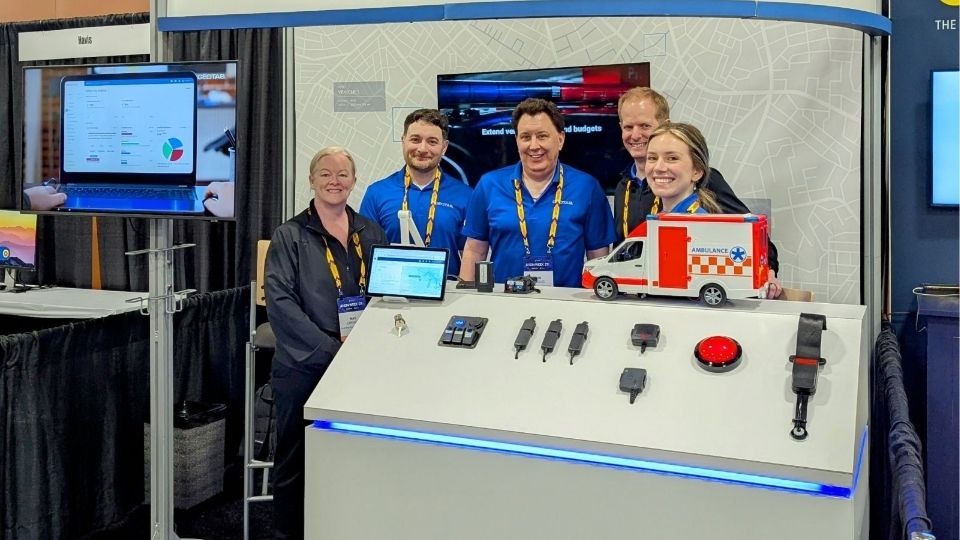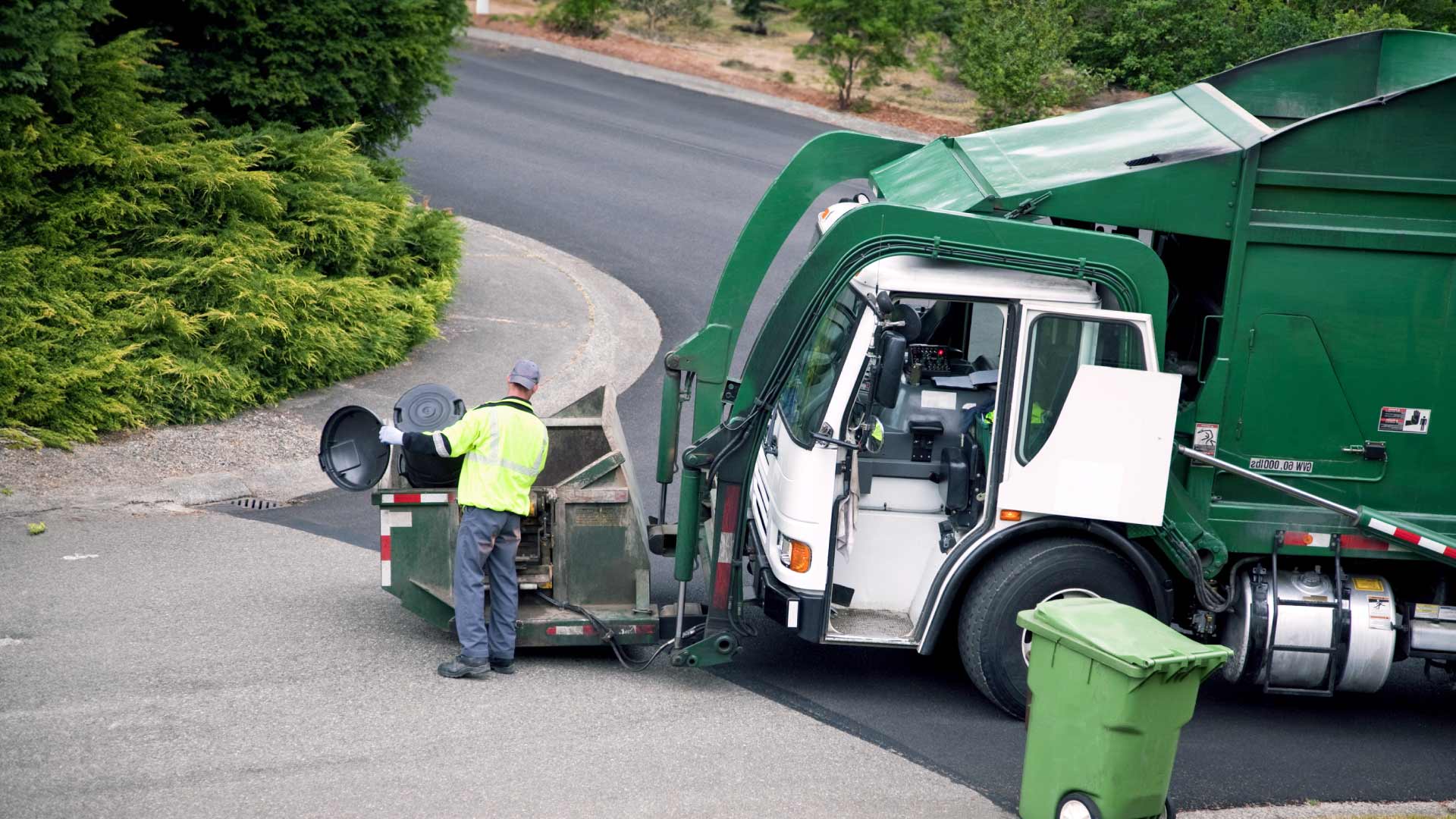Winter operations fleet managers help motorists safely navigate snowy streets
While many of us are enjoying spring and summer weather, winter operations fleet managers are already looking ahead to the next snowy season.


Winter driving conditions pose great risks to citizens traveling roadways and it's the job of winter operations fleet managers, to do everything in their power to mitigate such risks. Well-managed winter operations are pivotal for maintaining roadways ensuring the safety of all motorists including first responders, commuters, public works vehicles and cyclists.
Winter operations fleet managers are also responsible for meeting environmental compliance mandates as well as managing operational costs. Luckily, they have fleet tools to help them clear snow while monitoring material usage to meet environmental and cost-related mandates. One technology available to the snow fighting fleet managers is telematics. With telematics, also known as GPS fleet tracking, winter operations fleet managers can monitor fleet health, efficiently dispatch vehicles, respond to liability claims and manage material usage, compliance and accountability.
Here are the benefits of telematics for winter operations:
- Monitor fleet health
- Efficiently dispatch equipment
- Monitor material usage
- Strengthen compliance and accountability
- Assist with dispute resolution
Monitor fleet health
When snowy weather hits, winter operations fleet managers must be prepared to spring into action. Fleet managers can use telematics to understand vehicle faults and diagnostics and monitor sub-optimal vehicle performance for indicators of pending failures. Data can be used to develop preventative maintenance plans to ensure snow removal equipment are available when needed. Keeping all assets running during a winter storm event is critical.
See also: 5 ways to winterize your vehicle
Efficiently dispatch
Even when prepared, unforeseen situations can arise that require adjustment to the plan of action. Should the fleet manager need to dispatch a vehicle to assist with an assignment or be used to replace another shift, telematics provides the visibility required to make an informed decision on the proximity of all available assets. Knowing the exact whereabouts of their vehicles enables fleet managers to make any necessary adjustments required to continue snow removal operations without holding or slowing cleaning operations. In addition, efficient dispatching, whether planned or unplanned, will lead to increased operational cost savings.
Material usage monitor
Winter operations fleet managers are responsible not only for providing clear roadways, but also doing so in a sustainable way. Monitoring material usage is an important aspect of a winter operations fleet manager's job. It is the fleet manager’s responsibility to ensure that roadways are snow-free, yet are tasked with avoiding excessive material usage. This is an important consideration for the winter fleet manager as the use of excessive de-icing agents pose harm to the environment and society as a whole.
The concern with over-salting or over-usage of de-icing material stems from the fact that salt or de-icing liquid used in ice control operations eventually ends up in roadway drainage. Road salt (sodium chloride), ferrocyanide, phosphorus and other materials can contaminate groundwater and the soil and is difficult to remove.
The seepage is harmful to animals, to plants and the aquatic system. While the sodium ions in the de-icing liquid may bind to negatively charged particles and be used up in the biological process, the chloride ions are not as binding hence transport via soil and groundwater to surface water. Since the infiltrated salt particles are not subject to natural removal processes, they remain in surface water and their persistent accumulation in watersheds puts aquatic systems and water quality at risk.
Telematics provide fleet managers of winter operations with insights from the controller, such as solid application rates, liquid application rates, solid total accumulated, liquid total accumulated, solid material type used and liquid material type use. With these fleet metrics, fleet managers can make informed decisions to help safeguard our motorways and natural environment.
Compliance and accountability tool
With the use of telematics fleet managers can access live service maps to view real-time route completion tracking. To go above and beyond for the community, they can make service-level information available to motorists via public information systems. Such systems provide motorists with both mobile application and website access to receive updates on snow removal status. With this type of information in hand, motorists are able to plan their commutes accordingly avoiding roadways that could put them in harm's way.
Liability claims
Finally, telematics provides winter operations fleet managers with a tool to support or refute malicious claims. The combination of plow position status, spreader controller data and precise vehicle location with an exact timestamp help paint a detailed picture of what a vehicle’s doing at the time of claim. It’s been proven that the use of telematics helps reduce the cost of fleet collisions.
To learn more about Geotab’s ProPlus Public Works solution, visit our website.
Subscribe to get industry tips and insights

Marsilino Bilatos is a Business Development Manager, Public Works and Smart Cities for Geotab.
Table of Contents
Subscribe to get industry tips and insights
Related posts

The fleet safety incentive program checklist for driver engagement that lasts
June 19, 2025
2 minute read

Building a self-sustaining school bus driver safety program with Geotab Vitality
June 13, 2025
7 minute read

55+ Surprising distracted driving statistics and facts for 2025
May 30, 2025
8 minute read

Driving the Future of Public Safety: My Experience at Axon Week 2025
May 21, 2025
2 minute read

Six ways telematics reduces costs for waste management fleets
May 16, 2025
6 minute read
